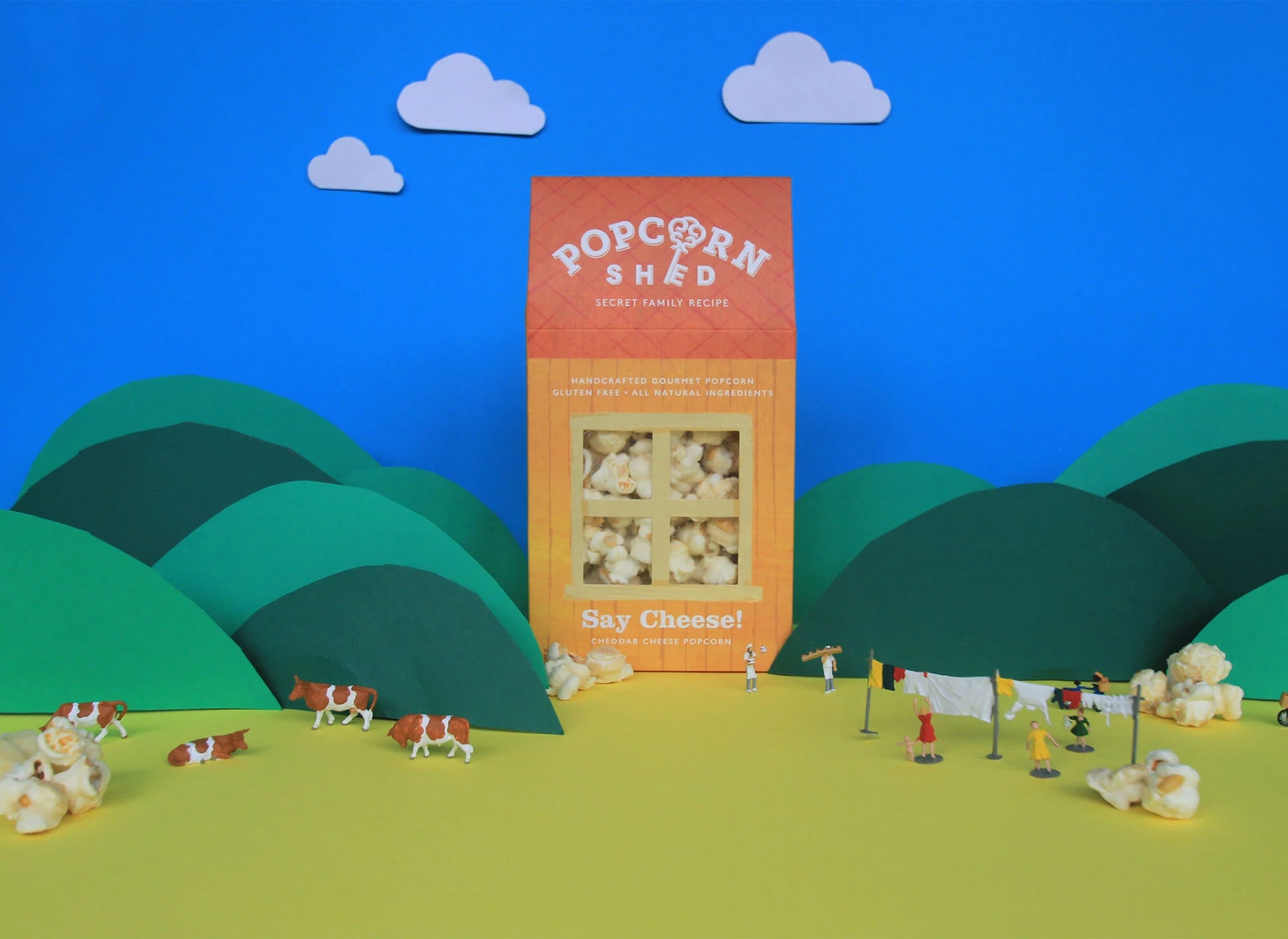
When Covid-19 forced businesses such as cinemas to close, it didn’t just impact those companies. Third-party suppliers such as Popcorn Shed were also hit badly by the coronavirus, seeing their primary source of income dry up.
Run by two cousins, Laura Jackson and Sam Feller, Popcorn Shed is a gourmet popcorn brand offering a range of sweet and savoury flavours, including salted caramel, goats’ cheese and pecan pie. And in normal circumstances it makes most of its money as a wholesale supplier.
“Most of our business before coronavirus was wholesale, business-to-business, so direct to shops, cinemas, distributors etc,” Laura Jackson, co-founder of Popcorn Shed, tells Verdict.
“Wholesale orders went very quiet over night as many of our customers closed their doors.”
However, while many customers faced temporary closure, the consumer market began to swell, as people trapped at home sought new and interesting treats to get them through the lockdown. For Popcorn Shed, it created a sense of urgency to beef up its offering to this market changed by the coronavirus, and keep the business going.
“As a business we had to act fast and were forced to focus all our efforts into improving and directing traffic to our online channels and moving to a more business-to-consumer model,” says Jackson.
How well do you really know your competitors?
Access the most comprehensive Company Profiles on the market, powered by GlobalData. Save hours of research. Gain competitive edge.

Thank you!
Your download email will arrive shortly
Not ready to buy yet? Download a free sample
We are confident about the unique quality of our Company Profiles. However, we want you to make the most beneficial decision for your business, so we offer a free sample that you can download by submitting the below form
By GlobalData“We were on track to launch some new products; however we have put those projects on hold for now and have redistributed the budgets to online advertising.”
Popcorn Shed: Pivoting to the consumer market amid the coronavirus
While Popcorn Shed had a basic online store, the company took a number of steps to not only improve how it presented its products on its website, but also how it attracted new customers.
This, Jackson says, involved improving the company’s “website listings with better photography and descriptions”, but also involved setting up an Amazon Storefront and “learning how to use Facebook and Google adverts, which we had not really used previously”.
“We use a combination of video from Skillshare and Facebook Blueprint learning to get up to speed,” she says.
The company has also put considerable effort into customer outreach.
“We changed our social media strategy and released a series of blogs focused to staying at home i.e. what books to watch, film recommendations, make at home and colour-me-in popcorn boxes etc.”
So far, the results have been positive.
“Our online channels have been preforming very well. With everyone being at home and watching movies, our gourmet popcorn products are a great fit,” says Jackson.
“Popcorn Shed is gift-focused and we have seen a high number of customers purchase our products to give to someone else as a gift.”

Overcoming challenges
While the results of the efforts by Popcorn Shed in response to the coronavirus have generally been positive, there have been challenges to overcome.
“The courier service we use has experienced delays, so setting customer expectations has been a bit of a challenge,” says Jackson.
“Furthermore, sourcing certain ingredients has been slower than normal, so we’ve had to build that additional time into the supply chain.”
However, cloud-based applications have enabled Jackson and Feller to continue operating the company while in lockdown themselves.
“We have a new appreciation for some of the cloud software services that we use, such as Xero, which has enabled all of us to continue working, but from home,” she says.
“We have also had time to explore how to improve our online sales channels which we wouldn’t necessarily have made time for.”
And looking ahead, the company now sees business-to-consumer as key to its long-term strategy.
“I think we will definitely continue to build on our business-to-consumer offering and improve it where possible.”
Read more: Coronavirus case studies: How Toast Ale is using its pivot to online to help others






